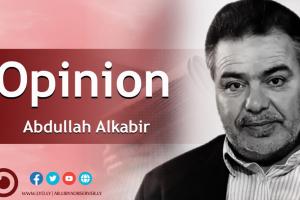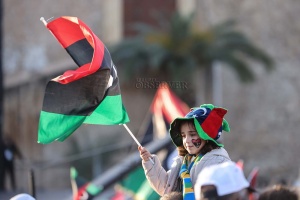By Abdullah Alkabir, Libyan political writer and commentator
Bathily’s initiative may calm down the conflict

Following the announcement of the roadmap by Khaled Al-Mishri, the Head of the High Council of State (HCS) and its approval in violation of HCS’s Rules of Procedure, the majority of HCS members rejected the roadmap, which debate has been continued by political parties. However, the House of Representatives (HoR) failed to hold a session to discuss it, amid reports that its speaker, Aqila Saleh, had been subjected to pressure to force him to resign.
Al-Mishri was insisting on passing the roadmap, so he did not give it sufficient time for discussion within the HCS, and he did not care about the opposing bloc, as the required quorum was not realized for its adoption in the next day’s pending session, as 38 votes were required, while the number of voters available was only 34.
The objections and boycott that Aqila Saleh was subjected to in the last session, indicate his loss of control that he has always enjoyed over the HoR, and this is an unprecedented development, as no bloc was formed to oppose Aqila and his loyal group, over the past years, and even the deputy who violated the context that Aqila wanted in one of the past sessions, another loyal deputy confronted him, and Aqila reprimanded the one who tried to prevent a possible quarrel between the two deputies.
Al-Mishri's roadmap does not aim to pave the way for elections, as much as it is a roadmap to change the executive authority, which is a stated goal agreed upon by Al-Mishri and Aqila, since last October in Morocco, preceded by a change of leaders of sovereign positions. Recent developments in the capital indicate an attempt to empower Faraj Boumtari, former Minister of Finance of Al-Sarraj’s government, to the position of the governor of the Central Bank of Libya (CBL) instead of Al-Siddiq Al-Kabir, after his arrival in Tripoli, in the same way that the head of the Administrative Control Authority was changed, but security services of the government took the initiative and arrested him.
In the following two days, members of HCS were prevented from traveling to Turkey to receive a pre-paid training course on the principles and rules of parliamentary work. The session organized by HCS Presidency precedes by a few days, the periodic elections for the HCS Presidency, through which Al-Mishri seeks to obtain a sixth consecutive term as head of the HCS.
In parallel with these developments, statements came out from the regions of the south threatening to close the oil fields, unless Boumtari is released, which is the same threat made by a person who presented himself as the head of the High Council of the Azwiya tribe, adding it as a condition for ousting the government and the governor of the CBL to reopen the oil fields.
UNSMIL commented on these developments with a traditional statement, in which it stated its dismay at the kidnappings and arbitrary arrests, and called on all parties not to escalate, and to avoid any unilateral measures.
In the previous article, I said that the scene was moving towards more escalation, as the momentum of the elections is declining, and Aqila- Al-Mishri alliance is facing an existential challenge. Al-Mishri did not succeed in mobilizing opinion on his side with his recent televised speech. Indeed, such televised speech may have backfired, as social platforms, and media outlets circulated reports about a bribe provided by Al-Mishri to HCS members, by sending them to Turkey, a few days before the round of elections for the HCS presidency.
On the other side, attempts to remove Aqila Saleh from the presidency of the House of Representatives continue. All these developments will weaken their ability to remove the Dbeibah government and form a new government, portfolios of which to be shared by active parties. The conflict over the government and financial resources may intensify to the extent of limited armed confrontation. The move of the UN envoy, and the activation of an initiative that brings together the political, social, and military spectrum, to agree on elections and their laws, may be a temporary solution to calm down the conflict.
Disclaimer: The views and opinions expressed in this article are those of the writer, and do not necessarily reflect those of the Libya Observer



